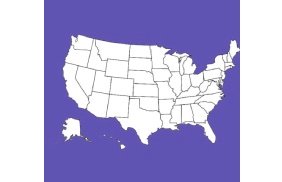When I started representing cannabis businesses in 2010, the biggest epidemic in the industry next to I.R.C. 280E was the overwhelming lack of cannabis banking. This inability to access financial institutions for just depository accounts was staggering to businesses, leading to endless public safety hazards and organizational chaos. Almost 14 years later, the cannabis banking crisis has somewhat improved due to the 2014 FinCEN guidelines. But they’re not enough on either side of the aisle, and Congressional Research Services (“CRS”) echoed that point in a recent “Legal Sidebar”, detailing the myriad liabilities financial institutions to face if they want to bank cannabis businesses.
FinCEN guidelines are an “okay” band-aid for cannabis banking
Due to the Bank Secrecy Act, anti-money laundering laws, and a slew of other regulations governing the financial services industry, cannabis banking violates federal law. However, after Colorado and Washington State legalized cannabis for adults 21 and up in 2012, in 2014, the Financial Crimes Enforcement Network (“FinCEN”) issued its own guidelines about banking cannabis companies. Of course, this was after the DOJ issued the “Cole Memo” (which no longer exists), and the FinCEN guidelines pay significant credence to that memo.
The FinCEN guidelines represent a couple of things. First, they’re the only path for financial institutions to legitimately engage in cannabis banking, but they do not change the laws governing the federal prohibition against cannabis banking. Second, these guidelines are really “know your customer” directives on steroids. Essentially, financial institutions have to know (and report to the federal government) every material detail about the structure and transactions of their cannabis business customers. Third, the FinCEN guidelines indicate that the Department of Treasury is thinking differently than the DOJ about cannabis banking. When the DOJ rescinded all cannabis-related enforcement guidance in 2018 (including the Cole Memo), the Treasury left the FinCEN guidelines in place, which is a good thing. It’s no secret that the ability to bank makes a cannabis business more transparent and financially accountable to regulators. However, while cannabis businesses and financial institutions have a lifeline to do business together thanks to the FinCEN guidelines, financial institutions still face the heat of federal law anyway.
Banks are in a rough spot with cannabis companies
Just because financial institutions follow the FinCEN guidelines to a tee doesn’t mean they’re safe from federal criminal, civil, and administrative liabilities. In its Legal Sidebar, CRS highlights just a few of the liabilities financial institutions still face if they bank the cannabis industry:
- violations of the Controlled Substances Act for aiding, abetting, and conspiracy by virtue of servicing cannabis businesses, which can lead to criminal prosecution;
- anti-money laundering laws;
- Civil, criminal, and administrative asset forfeiture of any assets used in or derived from cannabis crimes;
- the Bank Secrecy Act; and
- any number of other regulatory violations set by federal banking regulators.
Per the Legal Sidebar, as of June 2023, FinCEN reported receiving nearly 350,000 “marijuana-related suspicious activity reports” (which are required to be filed under the FinCEN guidelines) with 675 depository institutions in play. All of those financial institutions flirt with violations of federal law every day through their service to the cannabis industry.
The cannabis banking fix
For years now, Congress has attempted to pass cannabis banking reform to no avail. Right now, the latest iteration of that reform, the SAFE(R) Banking Act, is making its way through the Senate (now to the Senate floor) at a glacial pace (nonetheless, after a very favorable hearing in the Senate Banking Committee). The SAFE(R) Banking Act is truly what both cannabis businesses and financial institutions need to sustain a larger and more protected scale of cannabis banking. If passed, the SAFE(R) Banking Act would finally create a federal carve out for financial institutions banking the cannabis industry so that those institutions would no longer have to sweat violations of the CSA, anti-money laundering laws, or the Bank Secrecy Act (though it would enshrine and make law the rigorous know your customer standards imposed by the FinCEN guidelines). Equally as important, SAFE(R) Banking goes further than the FinCEN guidelines by clarifying that financial institutions can provide credit, debit, and lending services without consequences (FinCEN guidelines right now only really address deposits).
What should financial institutions do right now?
First, if you’re a financial institution that’s servicing cannabis businesses and you’re not following the FinCEN guidelines, that should change immediately. There is no other path to quasi-protection other than those guidelines. Second, ensure that your cannabis “KYC” protocols are in line with the guidelines and that you’re performing adequate due diligence on your cannabis customers. Third, know the state cannabis regulations to which your cannabis customers are subject. I cannot tell you how many times I’ve dealt with banks and credit unions that don’t keep up with state regulatory changes and inevitably and unknowingly bank illegal actors. Fourth, keep an eye on SAFE(R) Banking and, if it passes, get ready to revamp your cannabis customer policies almost immediately if you want full protection under the new laws.
Contact Us
Husch Blackwell’s Cannabis team has the experience to assist companies in navigating the complex and evolving federal legal landscape surrounding the cannabis industry. Contact Hilary Bricken or your Husch Blackwell attorney.




